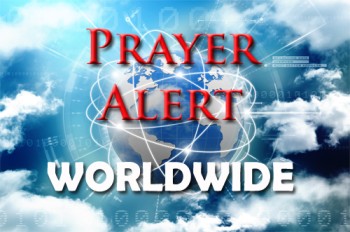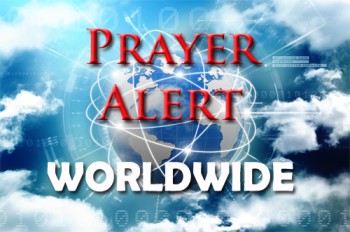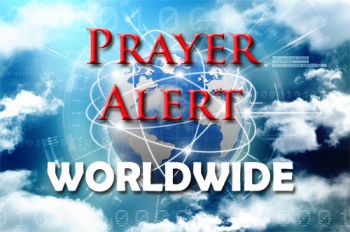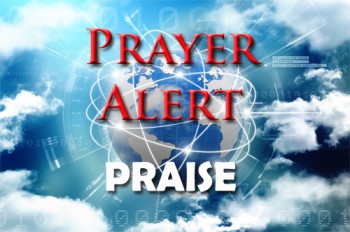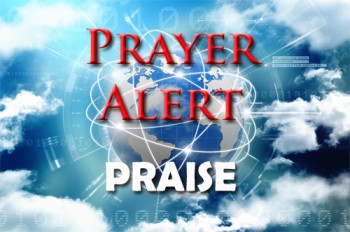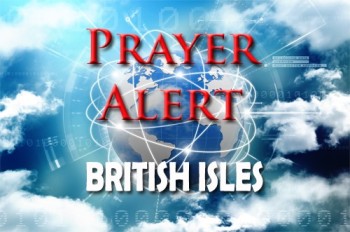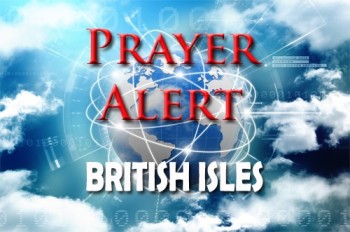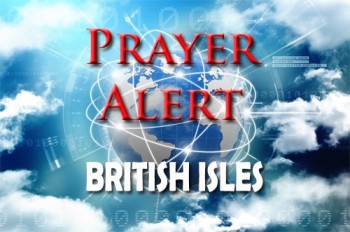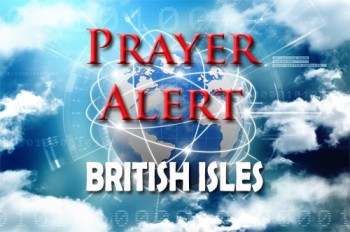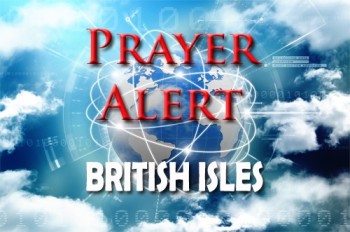
David Fletcher
David Fletcher is Prayer Alert’s Editor.
He is part of a voluntary team who research, proof-read and publish Prayer Alert each week.
If you would like to make a donation towards our running costs, please click here.
Donald Trump has extended the trade truce with China by another ninety days, narrowly avoiding a major escalation between the world’s two largest economies. The announcement came just hours before the previous deadline was to expire, averting a spike in US tariffs on Chinese imports and likely retaliatory action from Beijing. Both governments confirmed the extension, maintaining existing terms while allowing more time for negotiation. This delay is seen as a temporary relief for global markets and US companies which depend on trade with China. Earlier trade disputes saw tariffs soar to triple digits, severely disrupting international commerce and sparking volatility in financial markets. Although current tariff levels remain high, they are significantly lower than the peak rates imposed in May. Talks between Washington and Beijing continue, with hopes for a more permanent resolution and a possible summit between Trump and Xi Jinping later this year. However, key issues remain unresolved.
The government has ordered the immediate removal of street vendors from Harare’s central business district and reaffirmed a national ban on the import and sale of second-hand clothes. Local government minister Daniel Garwe cited concerns over urban disorder, the rise in illicit nighttime activities, and the negative impact on formal businesses. However, opposition politicians believe street vending stems from desperation, not defiance: they argue that many citizens rely on informal trade for survival amid chronic unemployment and economic mismanagement. One has said that such policies, without viable alternatives, only deepen suffering. Instead of punitive measures, she has called for inclusive economic reform, skills development, and gradual integration of informal traders into formal markets. Previous crackdowns failed because they didn’t address the underlying causes of poverty.
President Dina Boluarte has signed a contentious law pardoning soldiers, police, and civilian militias accused or convicted of atrocities during Peru’s 1980–2000 armed conflict against Maoist rebel groups Shining Path and Tupac Amaru. The measure, despite an order from the Inter-American Court of Human Rights to suspend it, will release those over 70 and halt or overturn more than 600 trials and 156 convictions. Peru’s Truth and Reconciliation Commission estimates that there were 70,000 deaths and 20,000 disappearances during the conflict, with state forces responsible for significant abuses, including 83% of documented sexual violence cases. Human rights organisations and UN experts have condemned the law as a betrayal of victims and a blow to decades of accountability efforts. Critics warn it undermines justice for survivors of massacres, torture, and enforced disappearances, while supporters describe it as honouring those who fought insurgency. The law deepens debate over justice, reconciliation, and impunity in Peru’s fragile democracy.
In a quiet corner of Sequim, Washington State, a church-run Ramen shop is offering more than food—it’s serving love, dignity, and the presence of Jesus. Designed as a 'pay-what-you-can' eatery, the space hums with peace and welcome. Visitors from all walks of life - students, elderly neighbours, the homeless - gather to enjoy nourishing meals in an atmosphere of grace. Each guest chooses their own broth, toppings, grains and greens, reclaiming choice where it’s often lost. Behind the counter, a pastor-chef and volunteers serve up bowls of care and compassion, sustained by generous patrons who 'pay it forward’. It’s an economy of grace, where no one is turned away, and everyone is treated with honour. The building itself feels soaked in prayer, a sanctuary where the love of Jesus is tangible. The Ramen Shop isn’t just feeding stomachs; it’s restoring souls - offering sanctuary, table fellowship, and the quiet declaration: you belong.
In their new documentary Show Me Your Glory, Eric and Kameron Swithin explore whether God still performs miracles today. Their journey began with Eric’s questions about the absence of biblical-style healings in church life. His curiosity grew into personal experience as he witnessed and participated in prayers that brought visible healing and change. The film captures this tension: why some prayers are answered with power while others appear to go unanswered. While filming, they saw both divine healing and God’s provision through medical means. One colleague had an aggressive brain tumour successfully removed during production. Another moment of awe came during an outdoor shoot when a storm visibly parted on the weather radar as they prayed, passing around their set like the Red Sea. The film shares eight real-life testimonies, alongside a book detailing sixteen miraculous stories. Among them is Sarah, once addicted and near death, now fully restored. Kameron reflects, 'God showed me that with Him all things are possible’. Their story is a powerful reminder that the God of miracles is still at work today.
The Government faces a £41.2 billion shortfall that could force Rachel Reeves to raise taxes this autumn to meet her own borrowing rules, according to the National Institute of Economic and Social Research (NIESR). Reeves has pledged that day-to-day spending will be covered by tax revenue and that national debt must fall as a share of income within five years. NIESR recommends moderate tax rises, including reforming council tax and expanding the scope of VAT, to reassure investors. Labour has previously ruled out tax hikes on 'working people’, but Reeves now faces a difficult balance between honouring manifesto promises, controlling debt, and funding public services. NIESR also urged the Government to focus on growth, productivity, and welfare reform. The poorest 10% remain worse off than before Covid. With sluggish growth projected, the autumn Budget is expected to be the most challenging of this Parliament. Breaking news: the Bank of England has cut its interest rate to the lowest for four years, which will benefit those paying mortgages. See
Home secretary Yvette Cooper has confirmed there is 'no specified number' of migrants set to be returned under the UK-France 'one in, one out' agreement, now in effect. The scheme enables the UK to return illegal Channel-crossers to France while accepting an equal number of vetted asylum seekers with ties to Britain. Though early estimates suggest around 50 returns per week, this is modest compared to the 800 weekly arrivals this year. Critics argue that the plan addresses only a small portion of illegal arrivals and lacks true deterrence. The treaty was agreed between Prime Minister Starmer and President Macron following months of negotiations. The Home Office has pledged £100 million to support enforcement, fund 300 new National Crime Agency officers, and bolster anti-smuggling technology. Migrants returned to France cannot reapply via the legal route. The treaty remains active until 2026, with ongoing reviews planned. See
As the back-to-school season approaches, a major debt advice charity is urging the Government to introduce a statutory school uniform grant for England. While families in Scotland, Wales, and Northern Ireland receive support of £93 to £200 per child, just 22 out of 153 English councils offer any dedicated help, creating a postcode lottery of support. The average uniform cost now exceeds £340 for primary pupils and £450 for secondary students. Money Wellness says current Department for Education reforms, such as limiting branded items, will not be enough for low-income households. With council budgets under pressure, many families are turning to uniform banks for affordable or donated items. Some families welcome the destigmatisation of second-hand clothing and its environmental benefits. Campaigners stress that without a consistent national scheme, children risk being disadvantaged based on where they live.
Downing Street has refused to confirm whether the UK will proceed with recognising Palestinian statehood in September if Hamas remains in power or hostages are not released. Keir Starmer previously stated that recognition depends on Israel meeting certain conditions, including a ceasefire, increased humanitarian aid to Gaza, halting annexation of West Bank land, and engaging in a peace process. However, critics argue the move could reward Hamas, especially in light of comments by its leader Ghazi Hamad claiming recognition is a 'fruit' of the 7 October attacks. Families of British hostages and some Labour MPs have voiced strong objections, insisting recognition should be tied to the hostages’ release. Despite calling Hamas 'pariahs' with no future role in Gaza, Starmer’s spokesperson said no single party will hold veto power over the decision. The Government insists its focus remains on increasing aid, ending suffering in Gaza, and promoting a two-state peace solution. A final decision is expected at the UN General Assembly in September. See
The election of Bishop Cherry Vann, an openly lesbian cleric, as the next Archbishop of Wales has drawn sharp criticism from senior leaders across the global Anglican community. Vann, currently Bishop of Monmouth and a patron of a pro-LGBT group, will be enthroned at Newport Cathedral. She has stated that gay marriage in the Church is 'inevitable’, though she acknowledges theological opposition within the Church in Wales. The Global Anglican Future Conference (GAFCON) called the appointment a 'serious error’; chairman Archbishop Laurent Mbanda has warned that it compromises biblical truth and bows to cultural pressure. Nigerian Primate Henry Ndukuba accused the Church in Wales of sacrificing the authority of Scripture for a postmodern agenda. Justin Badi Arama of South Sudan labelled the move a 'divisive rejection' of historic Anglican teaching. The controversy reignites tensions between progressive and conservative Anglicans worldwide. Former archbishop Justin Welby also faced criticism for appearing to shift from traditional biblical views on sexuality during his tenure.

